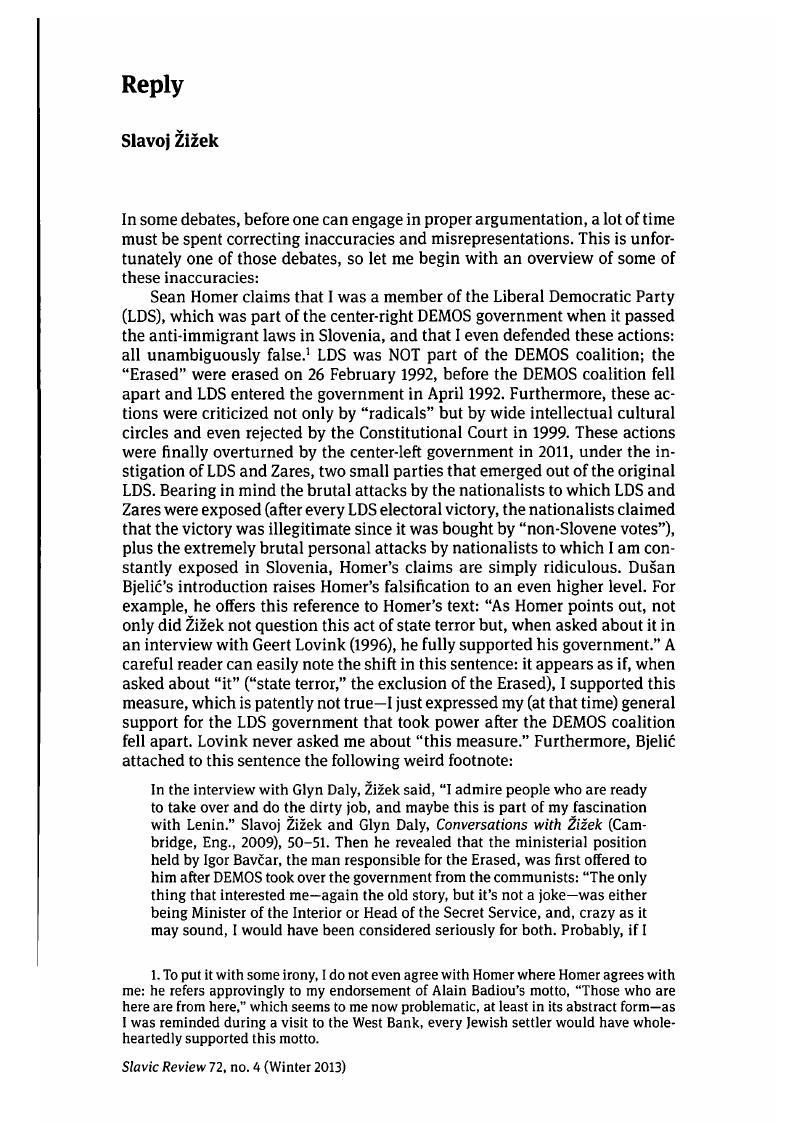No CrossRef data available.
Article contents
Abstract

- Type
- Slavoj Źižek
- Information
- Copyright
- Copyright © Association for Slavic, East European, and Eurasian Studies. 2013
References
1. To put it with some irony, I do not even agree with Homer where Homer agrees with me: he refers approvingly to my endorsement of Alain Badiou's motto, “Those who are here are from here,” which seems to me now problematic, at least in its abstract form—as I was reminded during a visit to the West Bank, every Jewish settler would have wholeheartedly supported this motto.
2. Bjelić, Dušan, “Is the Balkans the Unconscious of Europe?,” Psychoanalysis, Culture, and Society 16, no. 3 (September 2011): 315–23Google Scholar.
3. Hobsbawm, E. J. and Ranger, T. O., eds., The Invention of Tradition (Cambridge, Eng., 1983)Google Scholar.
4. The same goes for its obscene obverse, tantra, a network of practices and rituals that was systematized into a coherent dark, violent, and dangerous cult by the British colonizers.


